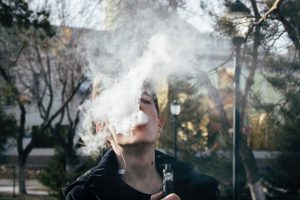
In December, California investigators also raided unregulated storefronts throughout Los Angeles and confiscated illegal vape products. According to state testing results, many of those products showed as far less potent than labeling suggested.
In some cases, the oil cartridges THC contents showed to be only a portion of that claimed and were diluted more than one-third by undisclosed but likely dangerous additives.
Los Angeles officials tested a sample comprising more than 10,000 randomly selected illegal vape pens confiscated in those raids. Results showed three in four vapes contained the thickening agent vitamin E acetate, which federal regulators blame for the majority of lung illnesses linked to the national vaping health crisis.
“The prevalence of dirty and dangerous vape pens at unlicensed cannabis stores demonstrate how important it is for consumers to purchase cannabis goods from licensed retailers, which are required to sell products that meet state testing and labeling standards,” said Lori Ajax, head of California’s Bureau of Cannabis Control (CBCC).
Regulated Vape Products Are Safe
According to the CBBC, to date, not a single vape disease case in California has been linked to a state-regulated source. Our Orange County marijuana lawyers believe test results show the source of the vaping health crisis stems from illegal manufacturers contaminating unregulated products on the illicit market.
Some confusion may exist among consumers, however, as the Centers for Disease Control and Prevention (CDC) fell short of evaluating the safety of regulated vape products. Instead, 16 percent of vape lung illness cases were linked by the agency to “commercial” sources which it deemed to include all “dispensaries, vape and smoke shops, stores and pop-up shops” without making the clear distinction between state legal and regulated outfits from unlicensed, illicit operations.
The licensed cannabis industry responded promptly and responsibly to the vape health crisis by quickly calling for tighter vape product regulation.
Federal Laws Restrict Research Efforts
Because federal laws dating back to the 1970’s restrict researchers from studying the medicinal benefits of cannabis — still classified as a Schedule 1 drug, which by definition possesses no currently accepted medical use, plus poses a high risk for abuse — should a researcher in California wish to conduct investigations on cannabis use, those researchers would be at risk of federal charges, even though the state of California permits the legal use of cannabis.
Scientists widely believe this stance prevents the research community from conducting the high level of research required to secure an FDA approval for cannabis, even though early research indicates marijuana might even serve as a favorable alternative to opioids and other medicines.
Legal Implications
If the United States were to legally regulate marijuana vaping products, as do countries like the United Kingdom, then the vaping health crisis may well disappear.
The Los Angeles CANNABIS LAW Group represents growers, dispensaries, ancillary companies, patients, doctors and those facing marijuana charges. Call us at 949-375-4734.
Additional Resources:
California’s Bureau for Cannabis Control
U.S. Controlled Substances Act (Title 21 U.S. Code)
